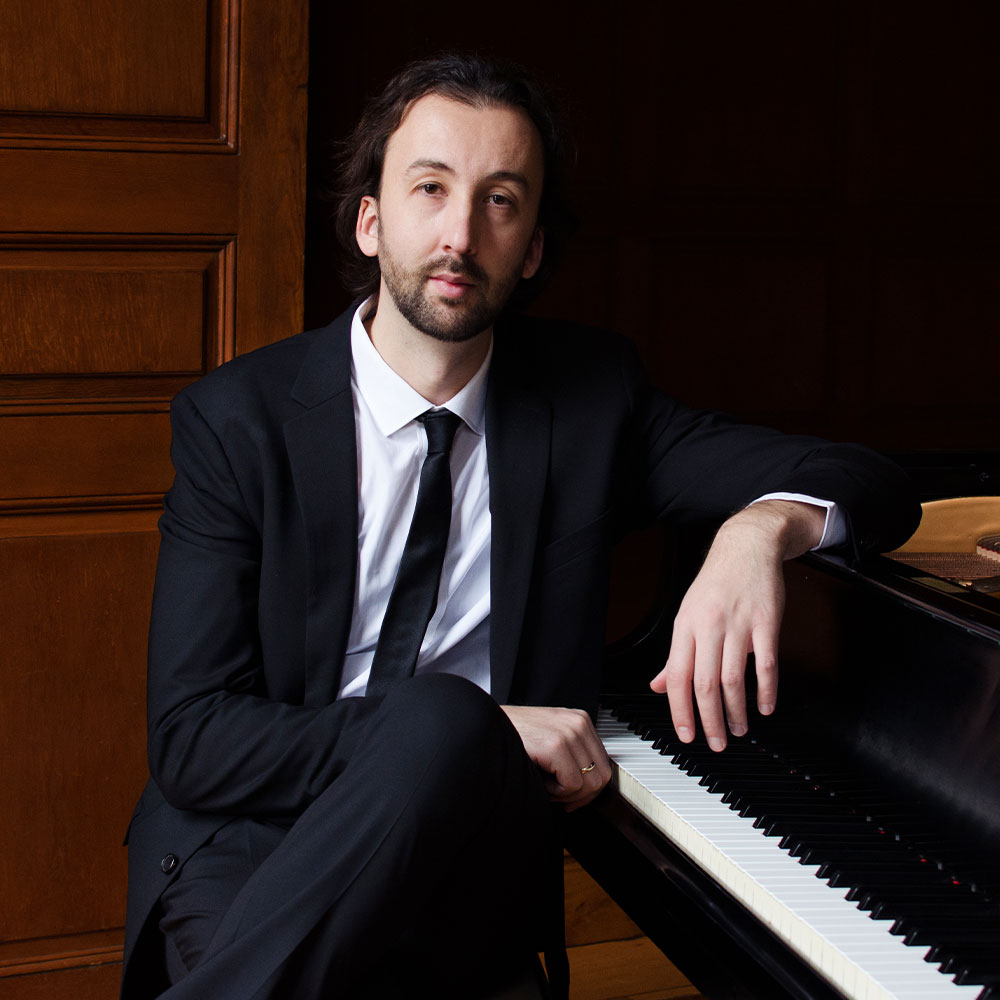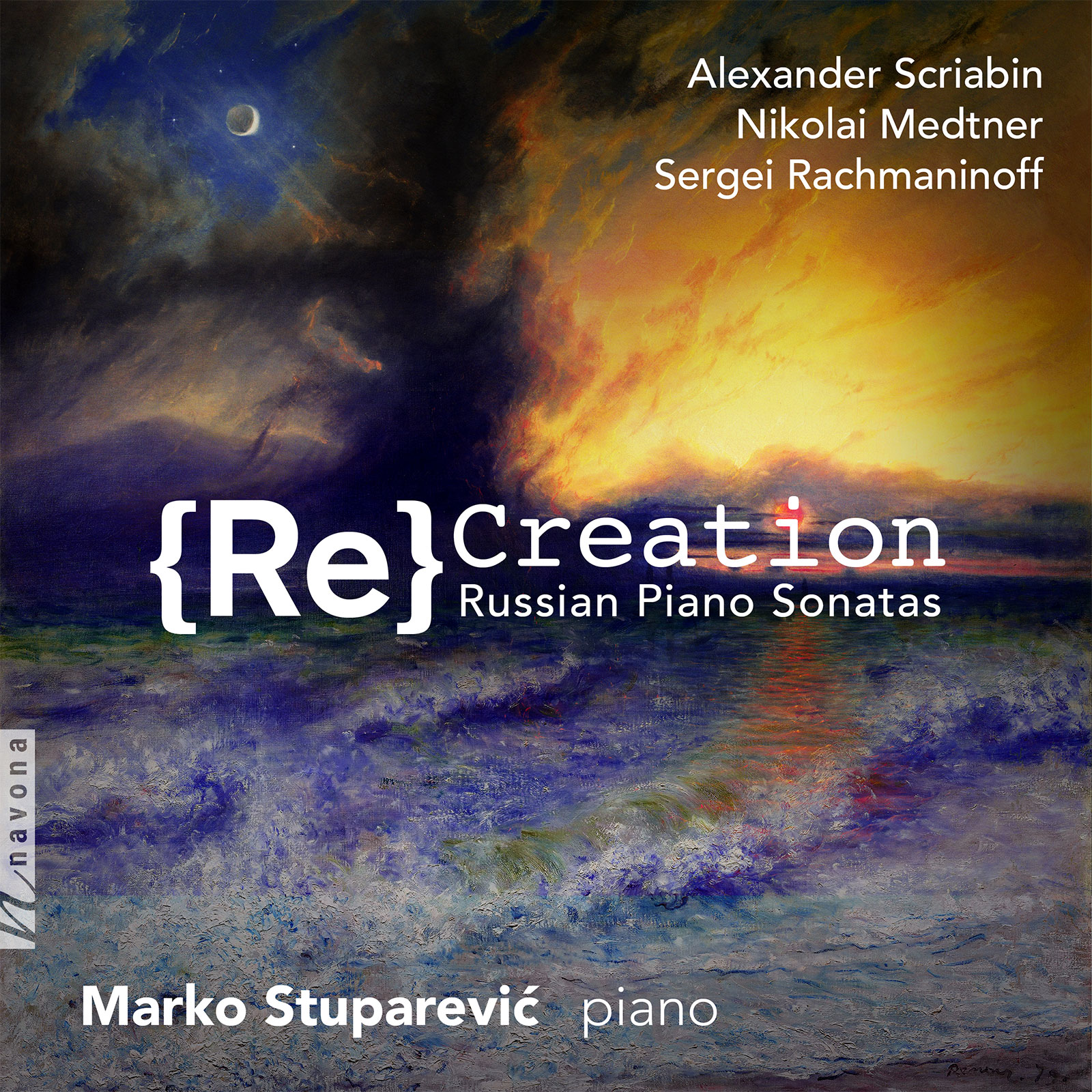
(RE)CREATION from Navona Records and pianist Marko Stuparević is centered on the acts of creation and re-creation, observed through three piano sonatas of three Russian composers: all pianists, contemporaries, and representatives of some of the most notable works of 20th century Russian piano music. Performed by the award-winning pianist, each sonata is rich with advanced compositional techniques and the individual ideologies of their composers, crafted with cyclical forms representing the circle of life. The works of Sergei Rachmaninoff, Alexander Scriabin, and Nikolai Medtner are on full display, born and immortalized into the never-ending life cycle they mirror.
Today, Marko Stuparević is our featured artist in “The Inside Story,” a blog series exploring the inner workings and personalities of our composers and performers. Read on to learn about Marko’s musical superpower, and his passion for wanting to be a part of the “creative force that moves the world forward.”
Who was your first favorite artist(s) growing up?
Growing up I enjoyed playing J.S. Bach’s pieces, and listening to Tchaikovsky and Scriabin’s piano music. To be fair, I only owned nine classical music cassettes at the time. Later on, I discovered Rubinstein, Horowitz and Richter. That kept me occupied for a few years. Besides classical music, I enjoyed listening to all kinds of musical genres, and I still do. Mostly pop/rock music before the 2000s. My super power is memorizing the lyrics of all songs.
When did you realize that you wanted to be an artist?
Since early childhood I have wanted to play music. I had stubbornly asked my parents to get me a piano until they finally did. When I was about 13 or 14, I made the decision to become a musician, and my commitment to practicing piano grew stronger over time.
What is your guilty pleasure?
I spend too much time watching and reading about basketball. I have followed the NBA daily since high school. I also love tennis. I find a lot of similarities between professional sportists and performing musicians.
If you could spend creative time anywhere in the world, where would it be and why?
I always loved being at the Avaloch Farm Music Institute in New Hampshire, which inspired me to have the most productive sessions during my artist-in residences. Also, I love the nature of the Berkshires in Massachusetts and Alpine regions of Europe. For work, I prefer a milder climate, outside of a city.
What was your favorite musical moment on the album?
It is hard to say, possibly the second movement of Rachmaninoff’s Sonata No. 2. Specifically, the buildup to the climax point, and the dissolving of the material after the peak.
What does this album mean to you personally?
My wife often refers to this album as my “passion project.” It was something I wanted to do for a long time. These works have been growing with me for many years prior to this recording project.
Rachmaninoff’s Sonata No. 2 has been in my repertoire since 2006, and in 2020 I chose it as the topic for my doctoral dissertation. Similarly, Scriabin’s 5th Sonata was the first work of Scriabin that I fell in love with. Medtner’s Sonata-Reminiscenza came into the mix later, but its honesty and emotions spoke to me right away.
During my life, important musical influences were my former teachers, all trained in the Russian piano school system. My pre-college piano teacher, Božena Griner, was a student of the famous Heinrich Neuhaus at Moscow Conservatory, followed by my college professor Jokut Mihailović, also a Moscow student. Finally, my professor in the United States was Dr. Paul Rutman, laureate of the Tchaikovsky Piano Competition, and an expert in Russian music himself.
In a way, it makes sense that my first solo album presents this specific program, and it is an homage to my teachers and my preferred repertoire.
Is there a specific feeling that you would like communicated to audiences in this work?
I hope that my passion for this music comes through to the audience, and inspires someone to learn these pieces or listen to other works by these great composers. I named the album (RE)CREATION, wanting to put the accent on the creative force that moves the world forward. Led by this force, these composers composed amazing piano works and inspired generations to come, including myself. My wish is that listeners take a moment to realize the ways that they are contributing to our planet and to the legacy of mankind.

Pianist Dr. Marko Stuparević has appeared in over 500 concerts and festivals over the United States, Israel, France, Serbia, Iceland, Bosnia and Herzegovina, Czech Republic, Bulgaria, Montenegro, and Slovakia as a solo performer and chamber musician. Winning piano competition prizes resulted in many notable solo recitals in the United States and Europe, including Carnegie’s Weill Recital Hall and many other important venues. Stuparević has performed as soloist with Connecticut Valley Symphony Orchestra (under Joseph Hodge), Razgrad Philharmonic (Krasen Ivanov), Symphony Orchestra of the Army House of Serbia (Simone Fermani), National Symphony of Bulgaria (Stanislav Usev), and Foot in the Door Ensemble (Glen Adsit).

